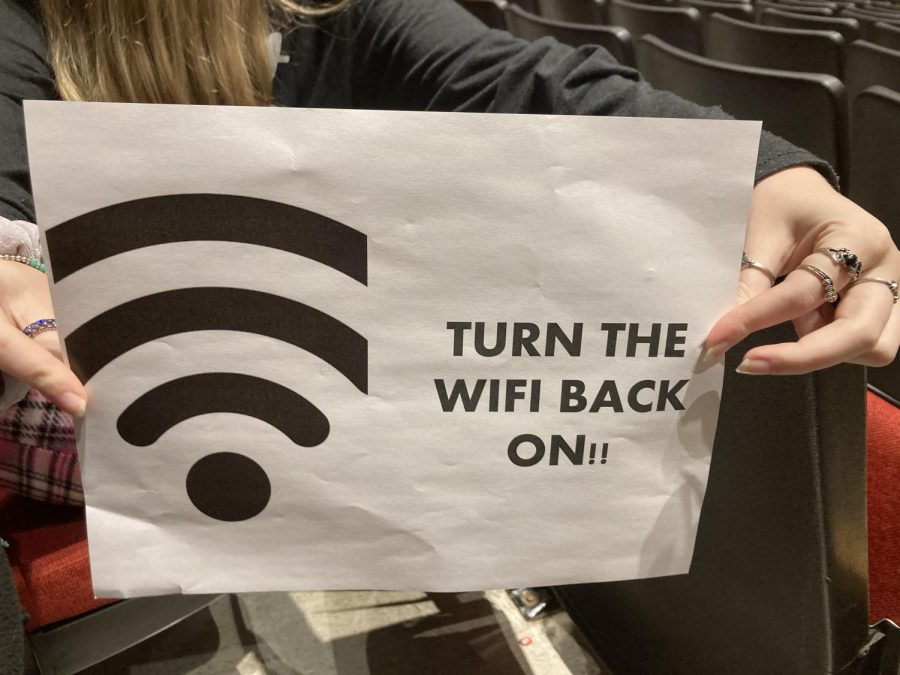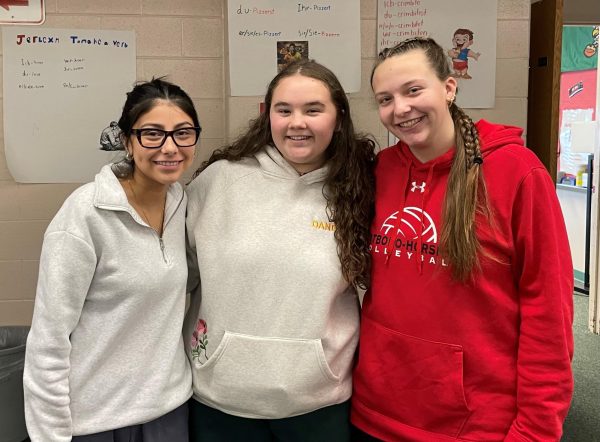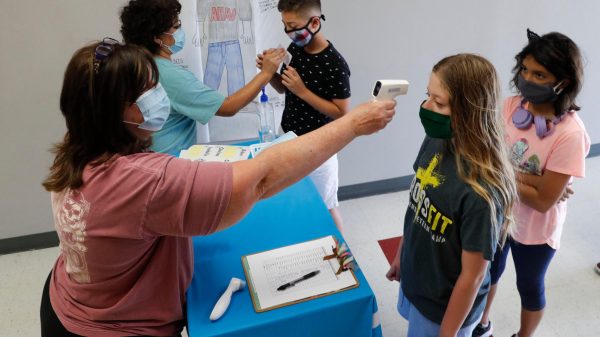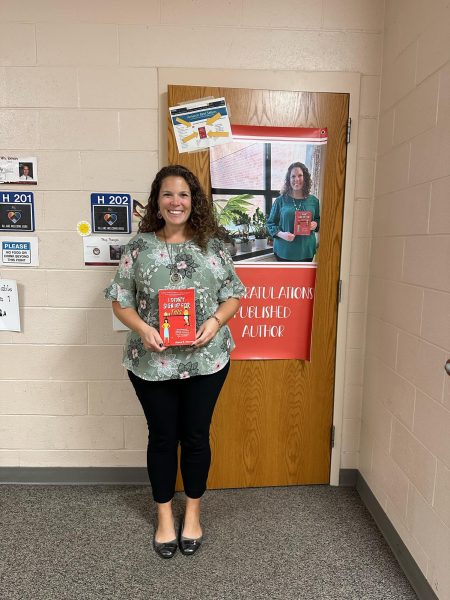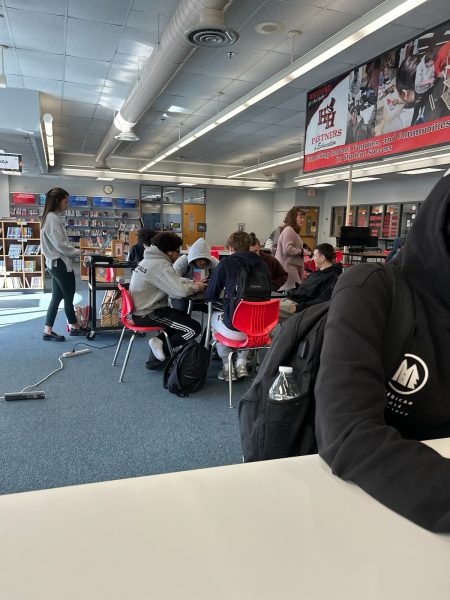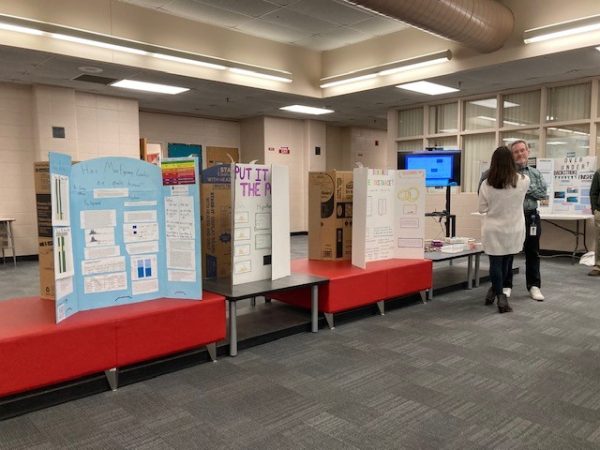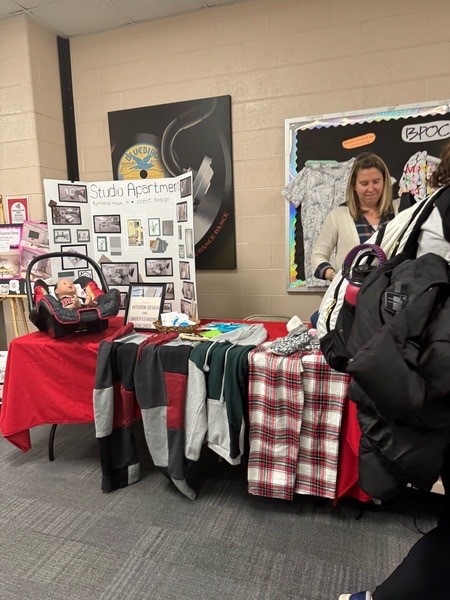Admin Opens Conversation to Students
How do we process this? Where do we go from here?
These are recurring questions asked in conversations among students and staff.
To gain perspective on what students are thinking after the chaos two weeks ago, head principal Mr. Dennis Williams and assistant principal Mrs. Angela Whelan held a Chat and Chew meeting on Thursday, Nov. 18 with a selected group of 33 juniors and seniors.
Speaking on how the administration picked students, Mr. Williams said, “We decided that we wanted a diverse group of students who brought different experiences and perspectives to the discussion. Students view high school and experience high school in very different ways–we wanted to have that diverse feedback as we worked to talk through the events of two weeks ago and how we can grow and learn from it.”
For some concerns, Mr. Williams and Mrs. Whelan offered clarification; for others, they showed that they were listening. They took notes on the discussion.
The theme of the discussion quickly became inadequate communication from administration, both during the lockdown and in the aftermath. The HATS Wi-Fi shutdown, which most had the impression was a form of discipline, was clarified as a misconception.
Mr. Williams said, “This was not solely in response to the fights. We shut it off because the role of cell phones in classes has become crazy, and students have been getting through the district network filter. There are up to 300 VPNS sitting on the network, and because our system isn’t built to only partially shut down, the question became, how do we shut it down and reopen it with clear limitations?”
He concluded, “Our failure to communicate about the Wi-Fi issue made people ‘connect dots’ that weren’t linked.”
In a recent newsletter, administration announced that access to Wi-Fi will resume on Monday, Nov. 22. Access to social media and methods of bypassing the district content filter will be barred.
Attendees were also in favor of changing the lockdown alarm, including integrating different alarms that could distinguish, for example, a lockdown from a lockout.
Junior Max Cassel said, “Even if the lockdown alarm’s purpose is to get everyone’s attention, it shocked everyone.”
Mr. Williams said that the administration was meeting with the District Health and Safety Committee to find different alarms.
“Our current alarm lasts three and a half minutes, and it can’t be interrupted,” he said. “On Friday, Mr. Rapino was trying to get on and communicate. We’re looking for other options.”
Attendees also shared suggestions for how to move forward from the fights.
Senior Morgan Long expressed that there is a need to “rekindle relationships in the building after a constant decline in school spirit. We need a school motto to unite us, something we can walk into the building and see plastered on the wall.”
“We do need more to unite us,” senior Abby Roesing agreed. “I think freshmen may feel isolated because they don’t know us. They’re not as afraid of getting in trouble, and they’re not embarrassed if a senior tells them to stop disrespecting teachers or turning the lights off in the hallway.”
“Underclassmen will be upperclassmen soon, and we’re the last ones who remember the traditions. We need to fix this soon,” senior Alice Hall said.
On that note, senior Charli Schultz weighed in, “We should change the pep rally to include all four grades again, rather than just two.”
It was a timely suggestion. The day after the meeting, with help from Scholar’s Seminar, the pep rally scheduled for Wednesday, Nov. 24, will include all four grades.
“Some admin also need to be more understanding,” said senior Scott Douglass. “It’s like some security guards are looking for a fight; they speak very disrespectfully. I’ll be walking to the bathroom and they follow me down the hall. It’s like being an inmate.”
Alice agreed: “Hostile security makes you feel like you’re a bad kid. It makes you understand why some kids would get in a fight.”
Senior Martina Kernosh expressed that student leaders should not solely be relied upon to bring change.
“It would be a lot of emotional labor on student leaders to be responsible for that,” she said. “Solutions will come from administrative changes, reaching out to students and giving more mental health resources. Change needs to happen beyond us.”
Her words were met with many nodding heads around the circle of upperclassmen.

